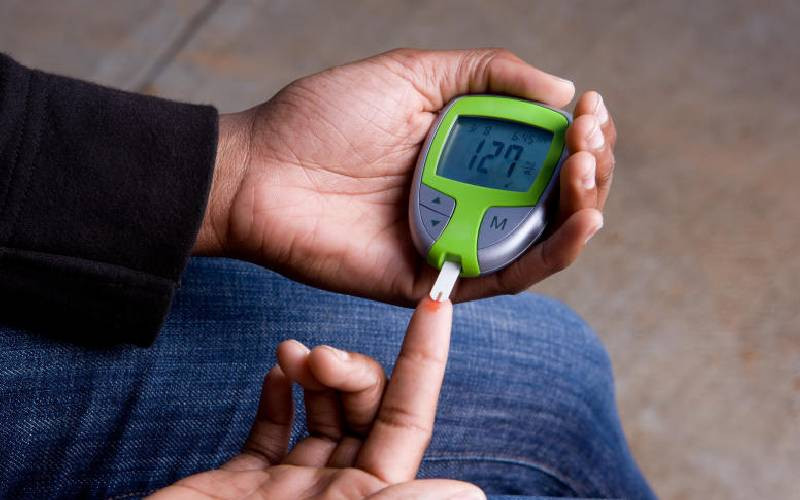
Did you know gum disease could be a sign of diabetes? And that bad breath could mean you have a lung infection?
Your mouth can give vital clues to your health, from undiagnosed conditions to stress, nutritional deficiencies and immune problems.
Here are some telltale signs – and what they may mean.
Red mouth, fat tongue
If the corners of the mouth are red, that can be a sign of B6 vitamin deficiency. Also, a swollen or red or pale tongue can indicate anaemia.
“Iron deficiency – anaemia – affects one in five women,” says Dr Marc Liechtung, principal of New York-based Manhattan Dental Arts.
Anaemia is a condition marked by a deficiency of red blood cells, resulting in pallor and weariness. Bring any colour questions to the attention of your dentist for further evaluation.
Dry mouth
This can be a side effect of drugs including antidepressants, beta blockers and antihistamines – it can also be a symptom of menopause.
“However, it could be due to Sjogren’s syndrome, in which the immune system attacks the saliva and tear glands,” says Dr Carter. If you have other unexplained symptoms, such as dry eyes and skin, tiredness and joint or muscle pain, see your GP.
Never stop taking medication without consulting your doctor – they may be able to prescribe alternatives that don’t have this side effect.
A lack of saliva makes tooth decay more likely. But don’t counteract it by sucking on sugary sweets.
Chew sugar-free gum or ask a pharmacist for lozenges, sprays or gels to combat your dry mouth.
Worn, chipped teeth
Chipped or worn teeth are usually caused by bruxism – grinding or clenching your teeth in your sleep – and 70% of cases are due to stress or anxiety, says the Bruxism Association.
“Grinding can result in up to two tons of pressure on the teeth – that’s 40 times more than general chewing – causing permanent damage. Other symptoms include headaches and jaw ache,” says Dr Carter.
Wearing a mouth guard at night will protect your teeth but it must be fitted by a dentist.
Mouth ulcers
Ulcers can arise after you accidentally bite your cheek or catch it with your toothbrush, or through abrasion from braces or dentures. But a persistent ulcer can be the first sign of mouth cancer – and isn’t always painful.
Last year, mouth cancer diagnoses increased by 18% to 7,698 and rates are predicted to carry on rising due to lifestyle factors.
“Alcohol and smoking together increase risk by 30 times but poor diet and the human papilloma virus, which can be transmitted through oral sex, are also risk factors,” says Dr Carter.
Bad breath
Short-term bad breath is usually caused by pungent food, smoking or dehydration. But if it’s more persistent, it can be due to gum disease.
“If you still have bad breath after a visit to the hygienist and regular flossing and brushing, there may be another cause such as a throat, nose or lung infection,” says Dr Carter.
“Other possible causes include sinusitis, undiagnosed or poorly managed diabetes and, more rarely, liver or kidney problems.”
If your dentist says your mouth is healthy and you still have bad breath, see your GP.
Eroded tooth enamel
Signs of tooth erosion include sensitive teeth and pockets around the gum line where enamel has worn away. While sugary foods are more likely to cause tooth decay, it’s the acid in food and drink that erodes enamel. Culprits include citrus fruit, fruit juice, smoothies, fizzy drinks and wine.
Gastro-oesophageal reflux disease, in which acid comes up from your stomach, can also damage enamel. It’s more common to flare up at night, when you’re lying down.
Occasional acid reflux is nothing to worry about, but if it’s persistent, see your GP, as over time it can increase the risk of cancer of the oesophagus.
In the meantime, don’t brush your teeth straight after food.
“Acid softens the enamel, so tiny particles are easily brushed away. Ideally wait for an hour after eating,” says Dr Carter.
“If you must have acidic drinks, use a straw and add a few ice cubes. The cold reduces a drink’s acidity.”
Bleeding gums
“Inflamed or bleeding gums are the first signs of gum disease, which affects 80% of us at some point,” says Dr Nigel Carter.
Left untreated, it can lead to tooth loss, but it’s also linked to a number of serious conditions.
“Research suggests that gum disease can almost double your risk of coronary heart disease and triple a woman’s chances of giving birth prematurely,” says Dr Carter.
A recent study found men with erectile dysfunction are three times more likely to have gum disease.
“It’s thought that gum disease enables bacteria from the mouth to get into the bloodstream via damaged gums, resulting in wider health problems,” adds Dr Carter.
A trip to the dentist, daily flossing and brushing for two minutes twice a day should address the problem. Eat plenty of veg, too. Recent German research found that vegetarians are less likely than meat-eaters to suffer from bleeding gums, tooth loss and potential life-threatening conditions.
 The Standard Group Plc is a multi-media organization with investments in media
platforms spanning newspaper print
operations, television, radio broadcasting, digital and online services. The
Standard Group is recognized as a
leading multi-media house in Kenya with a key influence in matters of national
and international interest.
The Standard Group Plc is a multi-media organization with investments in media
platforms spanning newspaper print
operations, television, radio broadcasting, digital and online services. The
Standard Group is recognized as a
leading multi-media house in Kenya with a key influence in matters of national
and international interest.










